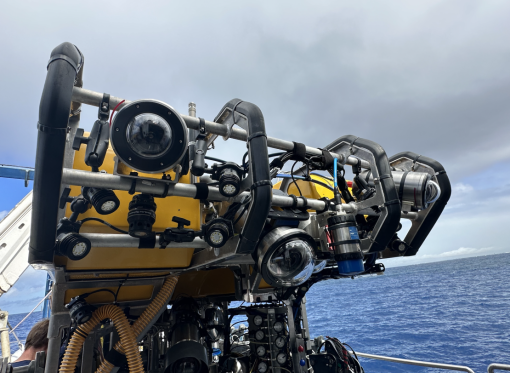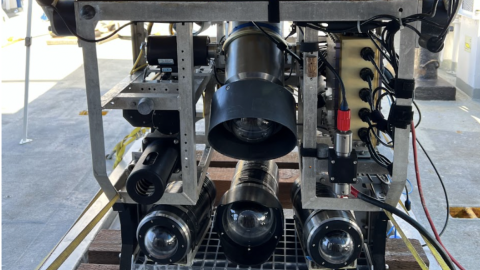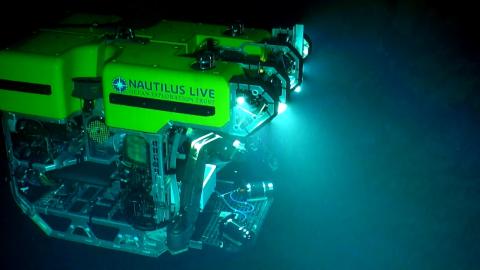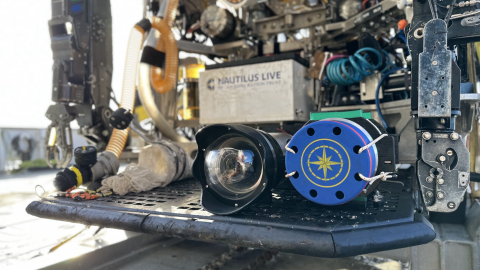Widefield Camera Array

The Widefield Camera Array was developed by Ocean Exploration Trust and the Sexton Corporation with funding from the Office of Naval Research to collect high-resolution imagery with the capability to develop 3-dimensional photogrammetric models, hemispherical video for immersive imagery, or and IMAX-quality cinematographic productions.
The system consists of up to three genlocked E2-F6 cinema cameras that record synchronous images at extremely wide fields of view. Two cameras in the array operate in parallel to record stereoscopic images at a 180-degree angle of view, with the third camera capturing a 60-107 degree image that is optimized for the light level, terrain, and altitude of a given survey. Each camera features a 24-megapixel full-frame sensor capable of imaging at 60 frames per second at 6064×2560 pixels per frame.
Science & Tech
Ocean exploration is a dynamic balance of understanding science and using the best in underwater technology.
Expeditions
Get a sneak peek of where we're headed next or revisit the discoveries of our past expeditions.
Classroom Resources
OET hosts a suite of free educational materials for use in classrooms, at home, or in the community.
Widefield Camera Array At-a-Glance
- ounted on ROV Hercules and ROV Little Hercules
- 6,000 meters
- 30 x 16 x 10.5 inches
- 160 pounds in air
- Three E2-F6 Pro cinema cameras
- 60 - 340 degree angle of view
- 24 megapixel full-frame sensors
- 60 frames per second at 6064×2560 pixels



